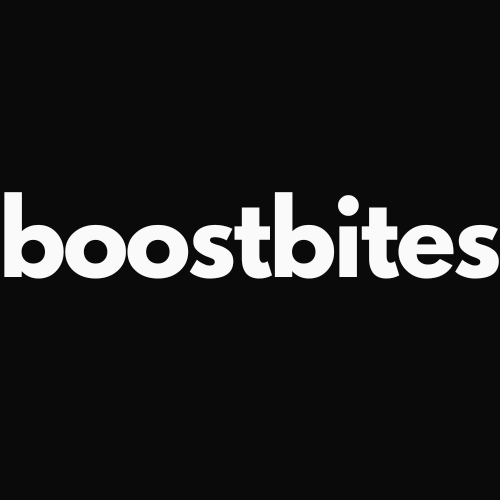When it comes to building muscle, improving strength, or recovering faster, two supplements dominate gym culture: creatine and protein powder. Both are widely used. Both are backed by science. But they do very different things. And if you're trying to decide which one to prioritize - or whether you should take both - this guide will give you everything you need to know.
We’ll compare creatine and protein powder head-to-head based on:
- Their biological function
- Their role in muscle growth and strength
- Timing and dosing
- Safety and side effects
- Their synergy when used together
We’ll also explore how convenient formats like BoostBites creatine gummies make one of these supplements easier than ever to take consistently - and why consistency matters just as much as the supplement itself.
What Creatine Does in the Body:
- Increases muscular energy availability during high-intensity effort
- Helps regenerate ATP faster between sets
- Delays muscular fatigue
- Supports total training volume
This makes creatine especially valuable for resistance training, sprinting, HIIT, or any workout that involves short bursts of effort.
Learn more: What Is Creatine?
What Is Protein Powder?
Protein powder is a concentrated source of dietary protein - often derived from milk (whey, casein), eggs, peas, rice, or soy. It contains all or most of the essential amino acids your body needs to rebuild tissue, particularly muscle tissue broken down during exercise.
Protein is not a performance enhancer. It's a recovery and repair nutrient. You need it to:
- Repair muscle fiber microtears
- Stimulate muscle protein synthesis (MPS)
- Maintain and build lean mass
Protein powders are a convenient way to hit your daily protein targets, especially if you struggle to get enough through whole foods alone.
In short: creatine helps you train harder. Protein helps you recover and grow from that training.
How Creatine Improves Performance and Training Capacity
Creatine enhances your ability to train at a higher intensity. Here's how:
ATP Regeneration and High-Intensity Output
During short bursts of exercise - like a heavy deadlift or a 30-second sprint - your body relies on the phosphocreatine system. This system allows you to quickly recycle ATP, giving your muscles the energy to contract at max force. When your phosphocreatine stores run out, your performance drops.
Supplementing with creatine increases your phosphocreatine reserves, which means:
- More reps before failure
- Higher loads lifted
- Shorter rest times
- Enhanced total volume across workouts
Over time, this greater training volume contributes to improved strength, lean muscle, and muscular endurance.
Creatine’s Neuromuscular Impact
Creatine may also support neuromuscular coordination by:
- Improving synaptic function
- Reducing central fatigue
- Enhancing motor unit recruitment
These effects, while subtle, can help with form under fatigue and allow more consistent, high-quality reps during tough sessions.
Learn more: Creatine Side Effects
How Protein Supports Recovery and Muscle Growth
Protein provides the building blocks (amino acids) required to repair and rebuild muscle fibers damaged during exercise. Without adequate protein, the process of adaptation and growth simply can’t happen.
Muscle Protein Synthesis (MPS)
The key to building muscle is tipping the balance toward synthesis over breakdown. Resistance training stimulates both - but protein intake post-workout is what tips the scale in your favor.
Protein powder is especially useful for:
- Hitting high daily protein targets
- Supporting hypertrophy
- Reducing muscle soreness (DOMS)
- Preserving lean mass during cuts or recomp phases
Explore how to optimize timing in Creatine on an Empty Stomach.
Whey vs Casein vs Plant Protein
Whey Protein
- Fast digesting (~30 min to 2 hrs)
- High leucine content (great for triggering MPS)
- Best post-workout or in morning
Casein Protein
- Slow digesting (~6-8 hrs)
- Ideal before bed to reduce overnight catabolism
Plant-Based Proteins (Pea, Rice, Soy)
- Varying digestion rates
- May lack one or more essential amino acids - so blends are ideal
- Better tolerated by dairy-sensitive individuals
No matter the type, your total daily protein intake is more important than exact timing or form.
How to Stack Creatine and Protein for Maximum Results
You don’t have to choose between creatine and protein - in fact, they complement each other perfectly when stacked properly. Here's how to do it:
Ideal Daily Stack for Muscle Gain
- Morning: 4.5g BoostBites creatine gummies
- Post-workout: Protein shake (20-40g protein) with carbs
- Evening: Optional casein shake if training late or during lean bulk
Timing Tips
- Take creatine at the same time every day to build habit - morning, pre- or post-workout are all fine
- Protein intake should be distributed across 3–5 meals to optimize muscle protein synthesis (MPS)
Common Mistakes to Avoid
- Relying solely on post-workout protein to “build muscle” while ignoring total daily intake
- Forgetting creatine on rest days - it works through saturation, not acute use
- Taking high-dose creatine and protein together fasted, leading to potential GI distress
Explore other ways to improve compliance in Are Creatine Gummies Safe for Long-Term Use?
Real-World Results: What the Data Says
Creatine’s Impact on Training Metrics
Meta-analyses show that creatine:
- Increases strength by 5-15% across compound lifts
- Improves sprint and anaerobic performance
- Supports lean mass gains of 2-5 lbs over 4-12 weeks (when paired with resistance training)
Protein’s Impact on Recovery and Muscle Mass
Research shows protein supplementation:
- Enhances recovery markers (CK levels, soreness)
- Increases fat-free mass when used post-exercise
- Maintains muscle during caloric deficits or cutting phases
The synergy of both is where things really shine: harder training + faster recovery = more gains.
See why so many users start with BoostBites creatine gummies to simplify one half of that equation.
Expanded FAQ: Creatine vs Protein
Do I need both creatine and protein to build muscle?
Technically no - but you’ll get better, faster, more sustainable results with both. Creatine helps you train harder. Protein helps you recover and rebuild. They serve different roles and work synergistically.
Which should I take first - creatine or protein?
There’s no “first.” Creatine timing isn’t critical - consistency is. Protein is best timed post-workout or evenly spaced throughout the day. Many users take BoostBites creatine gummies in the morning and protein shakes post-workout.
Can I mix creatine and protein in the same shake?
Yes - especially with powders. Creatine monohydrate dissolves well in most shakes. But if you’re using gummies, they’re better as a standalone - no mixing required.
Which supplement works faster?
Creatine typically shows noticeable effects within 1-4 weeks. Protein depends on your total intake and consistency. Creatine is more noticeable for strength. Protein is more subtle, supporting recovery over time.
Are there side effects from taking both?
No - both are safe when used properly. Just avoid overdosing creatine (4.5g/day is sufficient) and space out protein if you're consuming high amounts at once.
Final Verdict: Creatine or Protein - Which Should You Choose?
It’s not a versus - it’s a partnership.
- Creatine = more reps, more strength, more training output
- Protein = faster recovery, muscle repair, long-term growth
You’ll get results with either, but together, they form the core of any performance-focused supplement plan.
If you’re just starting out, the best first step is consistency - and BoostBites creatine gummies make that easy. They deliver 4.5g of lab-tested creatine monohydrate in a format you’ll actually take daily - no mess, no mixing, no compromise.
Try BoostBites Creatine Gummies - then let protein do the rest.




